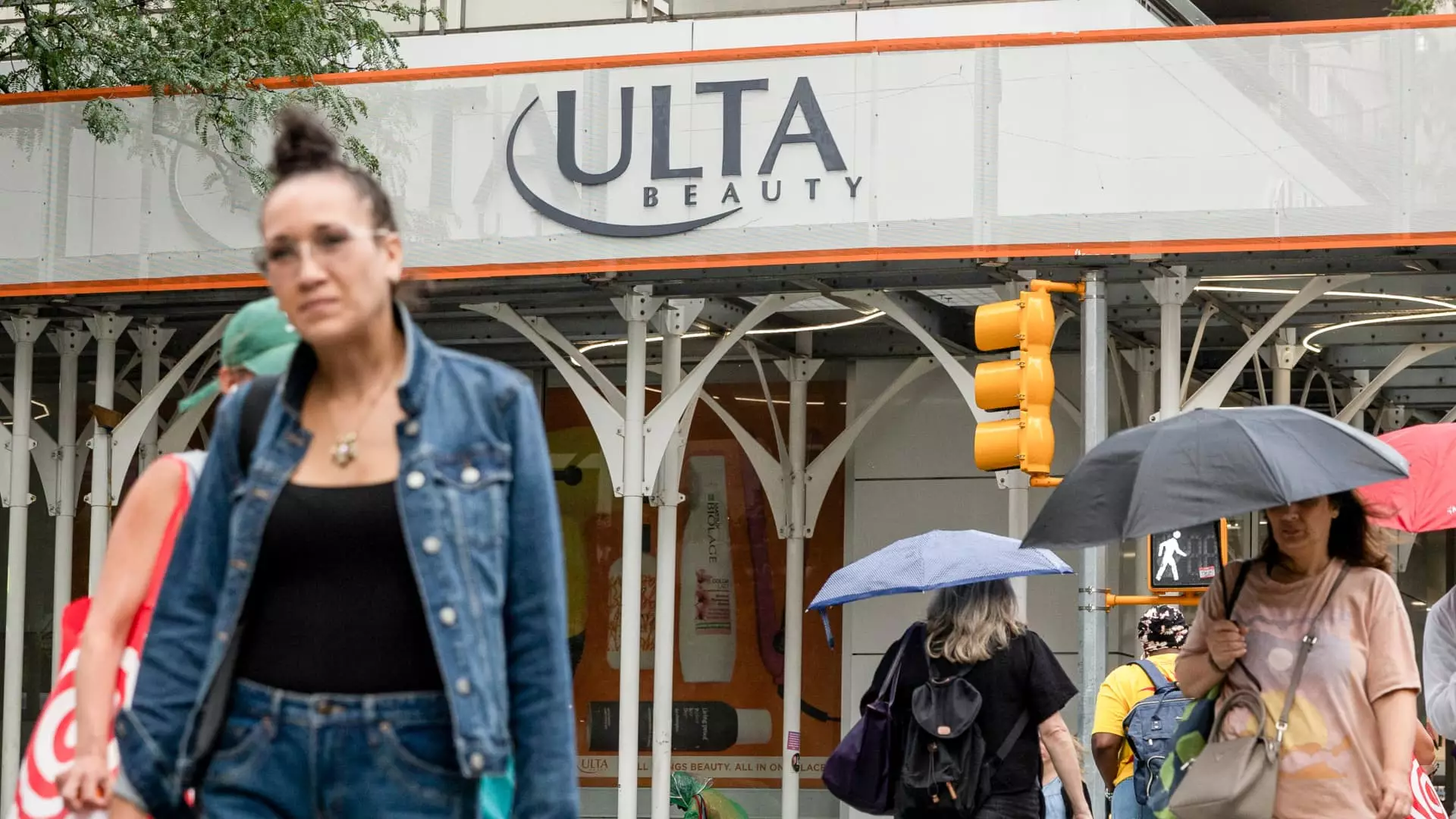Ulta Beauty saw its shares drop 7% in extended trading after the company reported falling short of second-quarter expectations and revised its full-year guidance due to a decline in same-store sales. The decline was a surprise to many, marking the company’s first earnings per share miss since May 2020 and its first revenue miss since December 2020. Comparable sales fell by 1.2% in the second quarter, which was a significant drop compared to the 8% increase the year before and below the 1.2% growth analysts had predicted.
According to CEO Dave Kimbell, there were several key factors that contributed to the declining sales performance. These included an “unanticipated operational disruption” following a change in store systems, disappointing impact from promotions, cautious consumer spending, and heightened competition in the beauty industry. Kimbell acknowledged that Ulta’s market share is under pressure, particularly in the prestige beauty sector where it lost ground in makeup and hair categories.
As a result of the disappointing performance, the company revised its full-year guidance, now expecting same-store sales to be flat to 2% down compared to the previous forecast of a 2% to 3% growth. Revenue expectations were also adjusted, with Ulta now forecasting $11 billion to $11.2 billion for the full year, down from the initial guidance of $11.5 billion to $11.6 billion. Earnings per share were revised to $22.60 to $23.50, a decrease from the original forecast of $25.20 to $26.
Despite the challenges, Kimbell remains optimistic about Ulta’s future, pointing to positive indicators in the broader business such as guest engagement, new store impact, and loyalty growth. He emphasized that the company is taking action to address the negative trends and is focused on strengthening its position in the market. Ulta is looking to relaunch its own beauty collection, provide personalized product recommendations online, and enhance its rewards program value through exclusive member events and offers.
Ulta’s stock had been on a downward trend before Warren Buffet’s Berkshire Hathaway disclosed a $266 million stake in the company, leading to a surge in share price. Analysts viewed this as a sign that the stock had been oversold, especially after a 32% decline in 2024 and a 26% drop in the second quarter alone. CEO Kimbell had previously warned of cooling beauty demand, and it appears that the impact of this trend came earlier and more significantly than expected.
Future Strategies
To combat the challenges faced by the company, Ulta is focusing on product assortment, brand relevance, digital experience enhancement, loyalty program improvement, and promotional strategies. The company is also looking to expand its partnership with delivery service DoorDash, test new gamification platforms, and personalize the customer shopping experience through new marketing technology. By identifying new opportunities and strategies as part of its turnaround plan, Ulta aims to strengthen its position in the competitive beauty industry.
Overall, Ulta Beauty’s revised guidance following its second-quarter shortfall reflects the challenges faced by the company in the current market environment. However, with a clear understanding of the factors contributing to its performance and a strategic plan in place to address these issues, Ulta remains confident in its ability to navigate the challenges and position itself for long-term success in the beauty industry.

